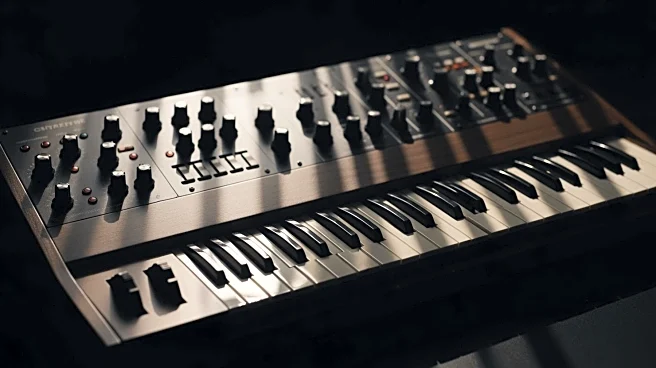What's Happening?
John Carpenter, renowned for his work in film and music, is reflecting on his career and the changes in the entertainment industry. Carpenter, who is now 77, has shifted his focus from directing films
to performing live music concerts. He is currently performing at the Belasco Theater in Los Angeles, showcasing his film scores and instrumental albums. Carpenter's music, characterized by its synth-heavy, hypnotic style, has gained significant cultural influence, with many modern artists drawing inspiration from his work. Despite his success in music, Carpenter expresses a sense of loss regarding the film industry he once knew, which he feels has drastically changed over the years.
Why It's Important?
Carpenter's transition from film to music highlights the evolving landscape of the entertainment industry, where traditional roles and mediums are increasingly fluid. His influence on contemporary music underscores the lasting impact of his creative work beyond cinema. As Carpenter continues to perform and create music, he contributes to the cultural dialogue around the integration of film and music, offering insights into how artists can adapt to industry shifts. This development is significant for stakeholders in the entertainment sector, as it reflects broader trends in how content is produced and consumed.
What's Next?
Carpenter plans to release a heavy metal concept album titled 'Cathedral,' which he describes as a movie in music form. This project represents his ongoing commitment to exploring new creative avenues and maintaining control over his artistic output. As Carpenter continues to perform and develop new music, he may influence other artists to pursue similar cross-disciplinary endeavors. The reception of his upcoming album and performances could further solidify his legacy in both the music and film industries.
Beyond the Headlines
Carpenter's reflections on mortality and control offer a deeper understanding of the personal challenges faced by artists as they age and adapt to industry changes. His experiences highlight the emotional and psychological dimensions of creative work, emphasizing the importance of resilience and adaptability. Carpenter's story also raises questions about the sustainability of traditional film-making practices and the potential for music to serve as a more enduring form of artistic expression.









